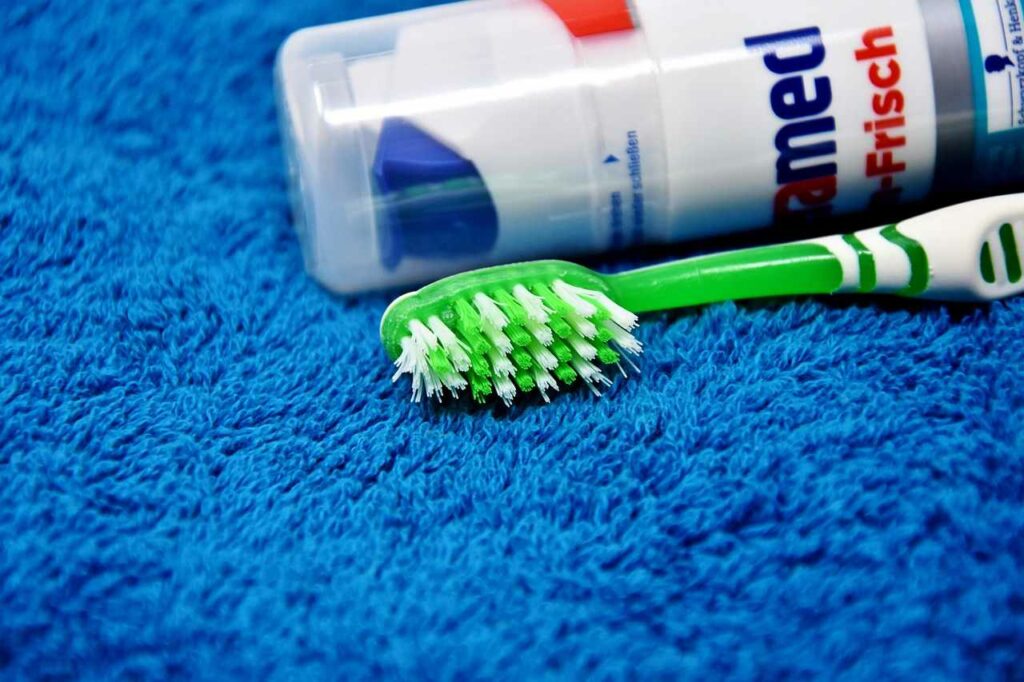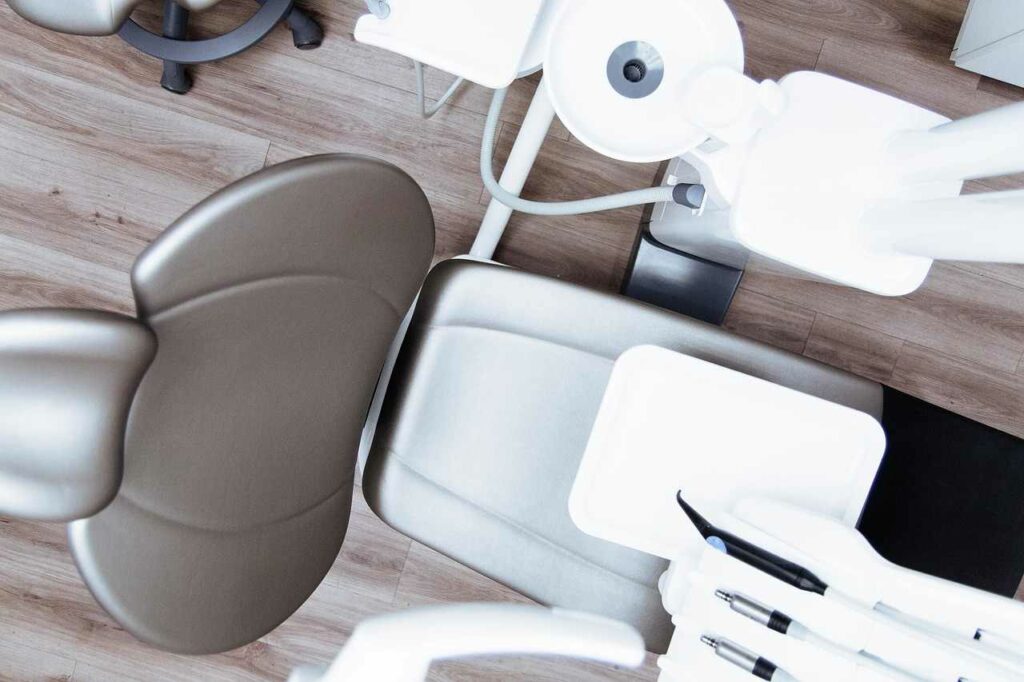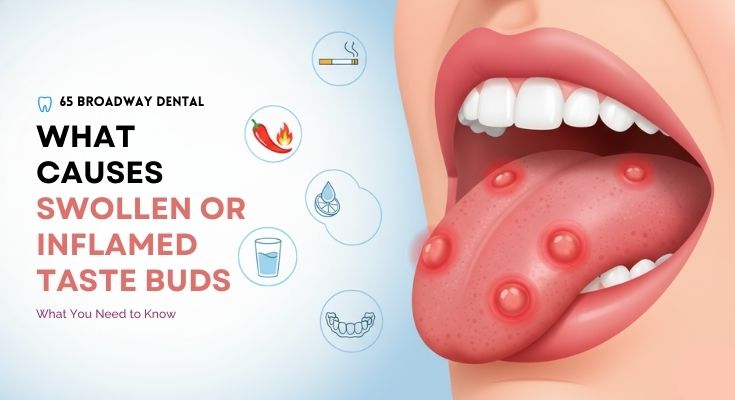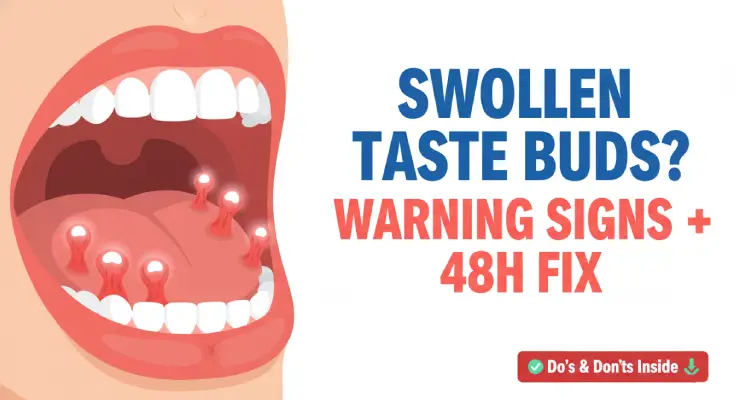How Dental Health Affects Overall Health: The Mouth-Body Link
The benefits of oral hygiene extend beyond sparkling whites and fresh breath! Multiple dental experts, like 65 Broadway Dental, link good overall oral hygiene to being a contributor to good health. People neglect to follow recommended oral care practices, unaware of how dental health affects overall health.
Understand the connection between your mouth, teeth, and gums and your overall well-being for better protection.
How Oral Health Affects the Body
The human body houses various germs, though they are mostly harmless and cannot access vital organs. Germs can enter the body through the mouth and access crucial organs, compromising your health. Oral germs entering the digestive tract can prove dangerous.
Once here, these oral germs can disrupt other critical organs and bodily functions. The immune system will fend off and keep oral germs in check to limit health issues. Brushing in combination with daily flossing stimulates saliva flow, which will:
- Dislodge food particles or disintegrate debris.
- Moderates the acid levels that oral bacteria produce.
- Protect teeth against decay and prevent gum disease.
- Aid in tackling the causes of bad breath.
The connection between dental and overall health proves the necessity of continuous oral care, but it doesn’t end there. Following good oral hygiene benefits the whole body as it prevents a plethora of diseases and conditions.
Conditions Linked to Ill Oral Health
You’ll be shocked to find that your bad oral health will affect more than your teeth, gums, and breath! It’s much worse as a bad bill of dental health can lead to issues from sleep apnea to life-threatening diseases.
Cardiovascular Diseases
You will probably be alarmed to read that oral disease could be the starting point of life-threatening heart conditions, including;
- Heart disease
- Artery clogging
- Stroke
Something as simple as knowing how dental health affects overall health can help deter severe heart complications and conditions.
Pneumonia
As germs enter through the mouth, they could enter the lungs and infect them. A serious health concern related to oral germs in the lungs is respiratory diseases, with one severe one being pneumonia.
Pregnancy & Birth Complications
Pregnant women must practice the best oral hygiene steps to safeguard against the following:
- Low-weight births
- Stillbirth
- Gestational diabetes
- Stunted fetal growth
- Pre-eclampsia
- Miscarriage
There is even a fear that oral bacteria can harm the fetus by entering through the bloodstream. It makes frequent dentist visits mandatory during pregnancy.
Additional Health Issues Associated With Oral Health
We’ve seen the diseases poor oral health can induce, but some diseases can also compromise your oral profile. These conditions are mostly reported among people who don’t know how dental health affects overall health.
1. Eating Disorders
Starvation or induced vomiting can deteriorate oral health through tooth erosion and fluctuations in saliva production. The unhealthy eating habits caused by eating disorders also lead to nutritional deficiencies, which can affect teeth in many ways.
2. Diabetes
There’s a significant link between oral health and diabetes, and a high percentage of gum disease patients suffer from gum disease. It’s because diabetes limits an individual’s ability to fight off and prevent gum infections.
3. Rheumatoid Arthritis (RA)
The autoimmune disease rheumatoid arthritis is known to impact oral health in countless ways. The impacts are visible in the form of:
- Gum disease
- Jaw issues
- Dry mouth
- Tooth decay
- People with rheumatoid arthritis are at greater risk of poor dental health than people who don’t have rheumatoid arthritis.
4. Cancer
An alarming number of cancers have their origins pointing to gum disease. These include some of the most lethal cancers that affect the mouth, GI tract, lungs, uterus, and prostate gland. It proves that maintaining your mouth, teeth, and gums is vital for cancer prevention.
5. HIV/AIDS
Mouth sores, known as mucosal lesions, are a typical symptom for most HIV/AIDS patients. Patients suffering from the disease will have to go the extra mile with dental care to treat and limit such issues.
6. Alzheimer's Disease
Studies by the NIH on dementia show a correlation between it and gum disease. Through the mouth, the causative bacteria of gum disease, Porphyromonas gingivalis, enter the bloodstream and reach the brain. It then triggers inflammation and cognitive decline.
7. Facial Swelling & Altered Eating Habits
Besides pain, a swollen face and unconventional eating habits are challenges that dental patients face. Inflammation in the gums can leave your face looking puffy and unsymmetrical.
It’s also possible that some people with face swelling may not suspect their teeth or gums as the instigator. The knowledge of how dental health affects overall health can save you from facing these facial anomalies.

What Causes Poor Oral Health?
There is no one factor behind good or bad oral health, as various factors influence your dental health. A clear understanding of the mouth-body connection and all the factors at play can aid in maintaining better care for teeth, gums, and breath.
1. Poor Unbalanced Diet
A nutritionally deficient diet or one that’s abundant with sugars is likely to deteriorate your teeth, and at an alarming rate! Also, consuming detrimental substances like carbonated drinks in significant volumes and frequency is damaging.
2. Detrimental Habits/Lifestyle
Dental health affects overall health, and eating habits and lifestyle are two components that influence your dental status. Also, frequent adoption of tobacco smoking and alcohol intake will take its toll on your teeth.
3. Weak Immune System
The ability of your immune system to mount responses against oral germs also affects overall oral health and the ability to deter significant gum and tooth conditions. Underlying immune disorders can hinder your body’s ability to fight off generic oral germs.
4. Genetic Disposition to Oral Conditions
Genetic composition does leave some people more likely to suffer from periodontal diseases than others. People with a greater disposition must amplify their oral care to be extra protected against these conditions.
5. Underlying Medical Conditions
Individuals suffering from pre-existing health issues like Alzheimer’s disease, HIV/AIDS, and Rheumatoid arthritis are more likely to face oral hygiene issues.
Good Practices for Oral Health and General Well-Being
There could be several reasons behind declining oral health, but the good news is that there are ways to reduce dental decline.
1. Brush Twice Daily
Daily brushing isn’t enough, and dentists across the country recommend doing it twice a day. They also suggest doing it for two minutes using a toothpaste containing fluoride, an element proven to benefit dental health.

2. Daily Flossing
Cleaning any food particles lodged between your teeth is another advisable step periodontists recommend. Using the incorrect tools can cause damage through an infection.
3. Brushing Correctly
Brushing incorrectly can do more harm than you think! Brushing roughly, in the wrong direction, or using stiff bristles, can damage tooth enamel and cause gum swelling.
4. Regular Dentist Visits
Visiting a reliable and qualified dentist is another mandatory step for maintaining optimal oral hygiene. A general visit twice a year is advisable, but more frequent visits are necessary for individuals with concerning tooth or gum conditions.
5. Addressing Health Conditions
As already covered, health issues can contribute to dental calamities. Hence, taking the time out to address other health concerns can help your oral health.
6. Following a Healthy Diet
Diet can be significant in taking better care of your mouth, teeth, and gums. A diet rich in Calcium, Vitamin C & D, Phosphorus, and Omega-3 Fatty Acids is critical to building and maintaining healthy teeth and gums. Limiting sugary foods and drinks also aids in oral care.
7. Managing Lifestyle Choices
Limiting alcohol intake and eliminating tobacco use will contribute to better oral health. While limiting other habits that deteriorate is good, eliminating them is ideal.
8. Regular Toothbrush Changing
Using preferred toothpastes and toothbrushes is non-negotiable. Recommendations suggest changing your toothbrush as often as once every three months! It isn’t excessive, given the amount of wear and tear brushing twice a day can do!
Also Read: 5 Signs You Need a Dental Checkup
What If I'm Afraid to Visit the Periodontist?
It’s not uncommon to avoid visiting the periodontist due to fear or embarrassment about your oral health state!
It’s not a valid excuse to avoid what could very well be life-changing dental care. Most people are afraid of the pain, while others are afraid of the costs.
The truth is, your teeth deserve care, and it’s an unavoidable human need. If you would go to the doctor for a general illness, why wouldn’t you go to the dentist for a toothache?
It’s a basic need to visit a dentist, whether it’s for:
- Cleanups
- Tooth extraction, like wisdom tooth extraction
- Treatment of gum disease
- Cavity filling
- Cosmetic treatment
- Ceasing of accelerated tooth deterioration
Is It Too Late to Make My First Appointment?
No, it’s never too late. Dental experts suggest booking an appointment immediately! Waiting any longer for a professional consultation could be costly.
Besides, you could be risking yourself further.
Dental care is one aspect of your health you don’t want to ignore or put off for another day. The issue can worsen as infections could spread and possibly enter the digestive tract and bloodstream.Once this happens, your body becomes vulnerable to multiple health concerns. The connection between dental and overall health is proportional, so stopping germs before they multiply and enter the body is the ideal disease prevention plan.
Subtle Signs You Need a Dentist Check-Up
Specific indications suggest that you should stop delaying your appointment and book it now. These are how you’ll know you are due for a dentist appointment:
- Any level of tooth pain
- Sore or bleeding gums
- Swelling or sensitive gums
- Visible tooth decay
- Bad breath
- Mouth ulcers or lesions
- Dry mouth
- Tooth alignment issues
- Discoloured teeth
- Jaw pain related to Temporomandibular Joint Disorders (TMJ)
- Metallic taste
- Health issues contributing to oral decline
Any of the above symptoms is a concern, especially when multiple symptoms appear for a prolonged time. Note that not all symptoms require surgical intervention; however, waiting longer could change this.

Why Oral Care Health Matters for Everyone
While many consider oral health a luxury, it’s a necessity for everyone.
A minimum of one annual visit is recommended to maintain regular and good oral care habits.
The link between oral and overall health is evident. That said, ignoring one can affect the other, leading to needless health struggles.
There is no way to maintain one while ignoring the other, as many people think they can work around dental care.
Do I Need to Visit a Dentist or Periodontist?
Many people fail to make the right decision for their dental well-being as they don’t know how dental health affects overall health. Most unsuspecting individuals have never heard the term ‘periodontist’ either, so a dentist is their only choice.
Unfortunately, due to this, many people don’t get the treatment they desperately need. We’ll detail the specific differences between a dentist and a periodontist, and why it matters.
- Dentists are your primary oral healthcare providers who do basics such as composite fillings and routine cleanings. They undertake the relatively non-invasive procedures that deliver your first-line oral hygiene. They are experts in diagnosing, preventing, and treating everyday oral issues.
- A periodontist is a dental specialist who works to prevent, diagnose, and treat diseases that target the gums, teeth, supporting jawbone structures, and surrounding connective tissues. Issues these experienced experts tackle are osseous surgery, tissue grafts, and other invasive treatments.
Dentists suffice for routine check-ups. However, for serious matters, a more seasoned professional is necessary. But choose a periodontist for gum disease treatment, teeth, and jaw restructuring procedures.
How Can a Dentist or Periodontist Help My Oral Health?
A dentist and a periodontist play complementary roles in keeping your mouth healthy.
Your dentist is your first line of defense, providing routine check-ups, cleanings, cavity fillings, and general care to prevent problems before they start. Both will regularly check your teeth and gums to detect primary signs of infection and can handle it immediately.
A periodontist suits best when gum health becomes more complex. For example, if you have advanced gum disease, receding gums, or bone loss around your teeth. Using specialized treatments such as deep cleanings, gum grafts, bone regeneration, and comprehensive dental implant solutions, they restore the structures that support your teeth.
Working together, your dentist maintains your overall oral health, while your periodontist addresses specific issues, ensuring your smile stays healthy and so does your mouth-body connection.
Conclusion: Healthy Teeth Lead to a Healthy Body
There’s no denying how dental health affects overall health and why taking care of your mouth matters.
Your ability to care for your mouth and everything in it can influence your well-being. A clean, disease-free mouth reduces the risk of severe conditions such as heart disease, diabetes complications, and chronic inflammation.
Maintaining your teeth and gums through regular check-ups, proper hygiene, and timely treatment protects your smile but also supports your body’s overall well-being.
If you haven’t had a check-up in a while, this is your reminder to do so due to the weight it carries on your health.
FAQs
1. Can a poor dental history affect my health?
A poor dental profile can lead to poor oral health and general well-being. Chronic gum disease, untreated cavities, and persistent oral infections don’t just stay in your mouth; bacteria and inflammation can enter the bloodstream, increasing the risk of heart disease, diabetes complications, and respiratory infections. Missing or damaged teeth can also affect nutrition if they make chewing difficult, and ongoing oral pain can impact your quality of life.
2. Will my bleeding gums disappear on their own?
Bleeding gums mostly indicate irritation, inflammation, or gum disease. The bad news is that it will rarely resolve on its own when you don’t address the source. This issue could be due to issues such as nutrient deficiency, plaque buildup, or even blood-clotting disorders.
3. Is visiting an experienced periodontist expensive?
Visiting a periodontist can be more costly than seeing a general dentist because of their specialized training, advanced technology, and the complexity of the procedures they perform. However, the investment often pays off given how oral health affects the body and how their expertise can prevent tooth decay and loss, eliminate long-term pain, and contribute to good long-term oral health. Many periodontists offer payment plans, and select procedures are covered by dental insurance, especially when they can compromise overall health.
4. What will happen if I delay my dental check-up?
Delaying your dental check-up allows treatable conditions to develop into ones that require surgical intervention. Teeth that may have been salvageable may need to be extracted, affecting your appearance, eating habits, and quality of life. Knowing how dental health affects overall health shows you know that regular check-ups are about more than appearance. They stop the problems before they create pain!

Dr. Alexander Heifitz (Author)
Dr. Alexander Heifitz is the founder of 65 Broadway Dental in NYC, where he combines advanced dental expertise with a patient-first approach. He specializes in cosmetic and restorative treatments such as dental implants, veneers, Invisalign, and smile makeovers, helping New Yorkers achieve both oral health and confidence.
Booking An Appointment
Looking for a reliable dentist in Downtown NYC? Whether you need a routine cleaning, urgent care, or a full smile transformation — we’ve got you covered. We accept most PPO insurance plans and offer flexible scheduling.
+1 (212) 430-3888
Call for appointment
Walk-ins Welcome / Same-Day Appointments Available

Related Blogs

What Causes Swollen or Inflamed Taste Buds?
Swollen or inflamed taste buds can be painful and annoying. Learn the 10 main causes, from poor oral hygiene to spicy foods and allergies.
Read More
Swollen or Inflamed Taste Buds on Tongue | Symptoms, Do’s & Don’ts
Swollen or inflamed taste buds on your tongue? Learn the symptoms, common causes, quick relief tips, and the key do’s & don’ts to heal faster and prevent irritation.
Read More